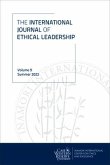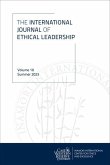This work is described by its distinguished author as a sequel to The Future of Human Rights. It is an analysis of the state of human rights in a 'post human' and 'machinistic' world almost overwhelmed by security concerns, 'terrorist threats', and technoscience. It begins with a series of questions: Are there now two different realms of human rights: human rights in times of peace and human rights in the 'state of exception'? Does such a distinction affect the nascent jurisdiction of the International Criminal Court? In what way do these impact on global social policy concerning development? The book goes on to present a critique of approaches towards a theory of human rights proposed by Amartya Sen and Sen's emphasis on the ethical, as opposed to juridical, nature of such rights. Focusing on the human right to development, the author examines why the UN Declaration on the Human Right to Development has not attracted more attention and goes on to highlight the work of Arjun Sengupta and its implications for the human right to development. It goes on to examine how in the current world scenario the 'emancipatory potential' of human rights may be carried forward in theoretical work and through activism.
This is the paperback version of the book, which the author describes as a sequel to The Future of Human Rights. It is an analysis of the state of human rights in a 'post human' and 'machinistic' world facing unprecedented security concerns, 'terrorist threats', and technoscience. It goes on to examine how the 'emancipatory potential' of human rights may be carried forward in theoretical work and through activism.
Hinweis: Dieser Artikel kann nur an eine deutsche Lieferadresse ausgeliefert werden.
This is the paperback version of the book, which the author describes as a sequel to The Future of Human Rights. It is an analysis of the state of human rights in a 'post human' and 'machinistic' world facing unprecedented security concerns, 'terrorist threats', and technoscience. It goes on to examine how the 'emancipatory potential' of human rights may be carried forward in theoretical work and through activism.
Hinweis: Dieser Artikel kann nur an eine deutsche Lieferadresse ausgeliefert werden.








